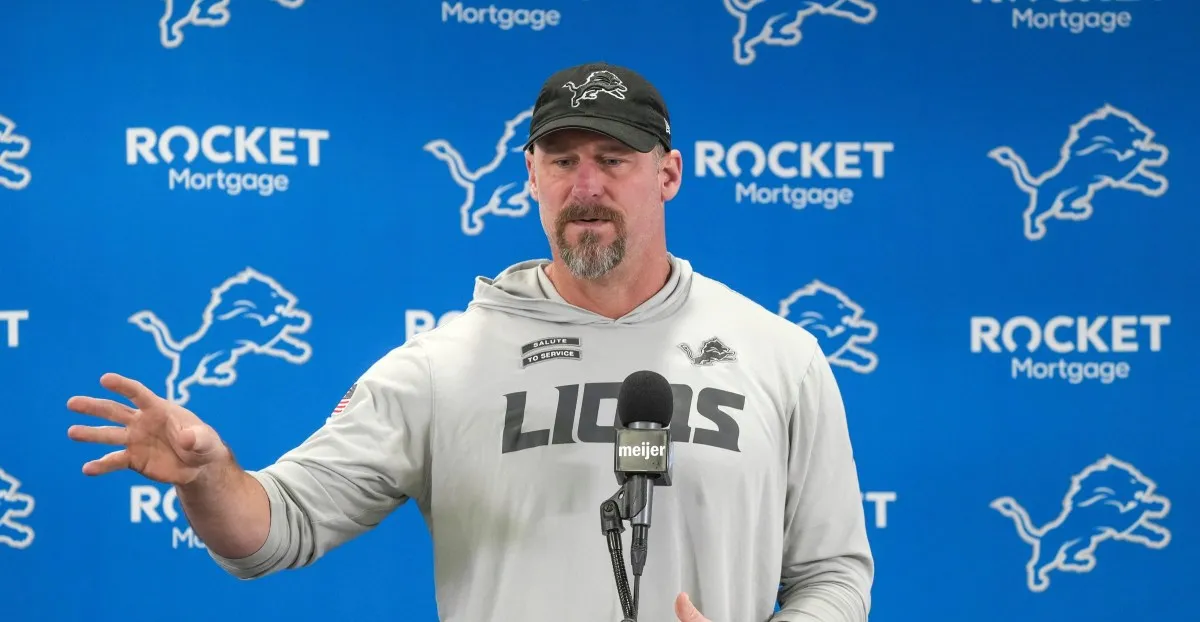
As the NFL trade deadline approached, the Detroit Lions made headlines by choosing not to make any significant moves. Head coach Dan Campbell faced a barrage of questions on Wednesday regarding the team's decision to stand pat. Earlier in the week, Campbell had expressed interest in improving their offensive line, especially given the current injuries within that position group. However, he later clarified that no worthwhile trade opportunities materialized. “There was nothing that was, I would say, enough to be noteworthy,” Campbell remarked. “I mean it was certainly more intriguing, but not—it wasn’t good enough. So, all good. All good. We’re ready to roll.”
Instead of pursuing external players during the trade deadline, the Lions opted to bolster their roster by signing three offensive linemen to their practice squad. These additions include veterans Netane Muti and Chris Hubbard, alongside rookie lineman Jack Conley. Furthermore, the Lions have several trusted players already within the organization, such as Kayode Awosika, Trystan Colon, and practice squad members Kingsley Eguakun and Michael Niese. This approach reflects the Lions' confidence in their existing talent pool.
During the press conference, Campbell emphasized the importance of weighing the value of potential trades against the capabilities of in-house players. “Yeah, he’s a little better, but is it really worth that for what you’re giving up versus the next guy we have ready to go as the backup that’s coming off of vet squad?” he explained. This philosophy underscores the team's cautious approach to trading, which prioritizes maintaining a strong roster over acquiring new talent that may not significantly improve the team.
Many fans had hoped the Lions would adopt a more aggressive stance at the trade deadline, potentially utilizing high draft picks to acquire elite talent and make a push for the Super Bowl. Given that general manager Brad Holmes previously worked under the Rams’ Les Snead, known for his “F— them picks” strategy, there was speculation about a similar approach. However, Campbell and Holmes have not pursued this path thus far, focusing instead on a strategy of drafting, developing, and retaining internal talent.
Campbell articulated that pursuing trades for established players would require not just giving up valuable draft picks but also incurring significant salary commitments. “That’s a lot of capital, especially with guys that we’ve got that we’re signing and we want to continue to sign to keep what we have intact,” he noted. This long-term vision is crucial for maintaining the stability and growth of the team.
With the trade deadline behind them, Campbell is now focused on maximizing the potential of the players currently on the roster. He expressed confidence in their ability to compete effectively. “I feel good. I’ll say this again, my job is to freaking get these guys ready to play on Sunday, and I’ve got the roster to do it,” Campbell stated. “We’ve got depth, we’ve got the dudes, we’ve got weapons, we’ve got a quarterback.”
In conclusion, while the Detroit Lions chose not to make any trades at the deadline, their focus remains on developing their existing talent and preparing for upcoming games. Campbell is committed to ensuring that the team is ready to perform at its best, reinforcing the belief that they have what it takes to succeed this season.